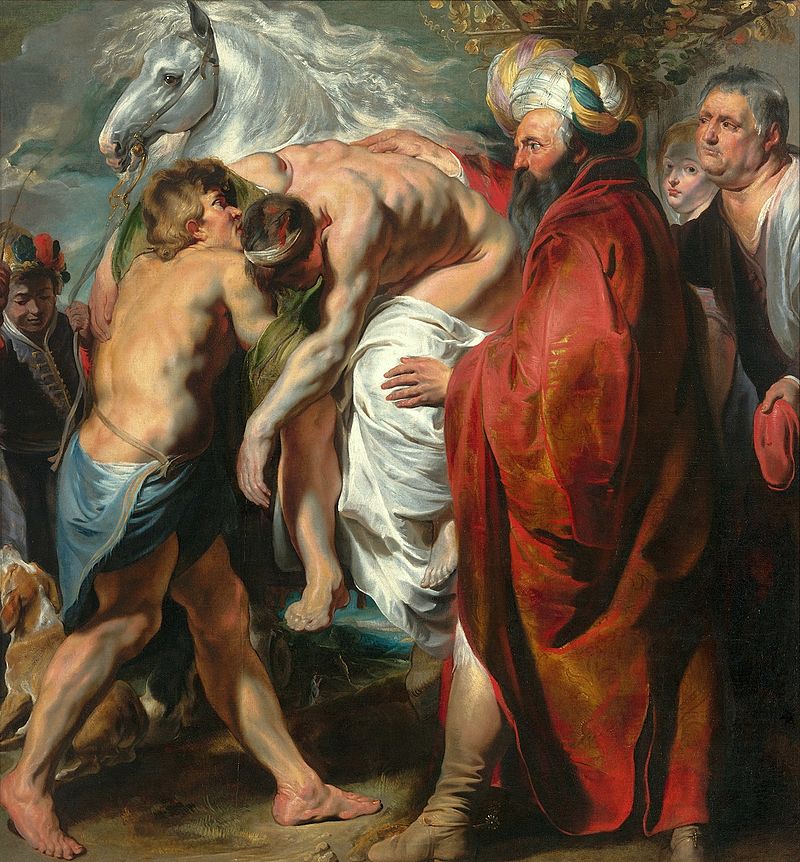
[Sidebar: Yes, I know it’s April Fool’s Day. No, I’m not participating. I don’t think it’s funny to lie to my friends. Seriously.]
In the previous post we noted Paul’s terse description of his mental state throughout a distraction-laden life: “one thing!” (Php 3.13).
We ended that post with a simple question: “How does he do it?”
He tells us in the passage—
[On the one hand] forgetting what lies behind and [on the other hand] reaching forward to what lies ahead, 14 I press on toward the goal for the prize of the upward call of God in Christ Jesus (Php 3.13-14).
I’ve cited the NASB 95 here and added the bracketed material to emphasize the polarity in Paul’s mind; he is completely abandoning one approach and completely committing himself to a different one. (Yep, that’s in the Greek.)
Forgetting the Past
Paul puts out of his mind what lies behind.
We need to note something key here: he’s in charge of his thinking; his mind is his servant, not his master.
You know, you can decide what and how you think. You can choose, by God’s grace, to think differently (Ro 12.2). It’s been suggested that what you think about when you’re not busy tells you what you care most about. Do you like what that says about you? If not, why not direct your mind elsewhere?
What he puts out of his mind is what lies behind.
What’s that?
- It could be his previous success among his peers, his earthly accomplishments, as listed in Php 3.4-6. “Forgetting” those things might mean simply that he doesn’t value them anymore (Php 3.7-8). His priorities and values have shifted.
- It could be the ministry difficulties and distractions that he’s talked about elsewhere (2Co 11). “Whatever comes my way in this walk toward Christlikeness, I’m going to work through it.”
- It could be his own godly efforts, which so far haven’t brought him to final success (Php 3.12-13).
We all can waste a lot of time and effort focusing
- on past failures—which, for the regenerate, are forgiven and forgotten by God
- or on past successes—which smacks of pride and works-based approval
- or on the pain of the struggle—which implies that the goal is not worth the pain
But those things are indeed insignificant, comparatively speaking.
Eyes on the Prize
By contrast—“on the other hand”—Paul throws himself completely forward, into the harness, straining every muscle, focusing every thought on reaching the goal.
I press toward the mark.
His word press is the same word he used back in verse 6 of his zeal for persecuting the church. Luke says of those days that Paul (then called Saul),
breathing threats and murder against the disciples of the Lord, went to the high priest, 2 and asked for letters from him to the synagogues at Damascus, so that if he found any belonging to the Way, both men and women, he might bring them bound to Jerusalem (Ac 9.1-2).
Yikes.
With that kind of total commitment, he presses now toward the goal of knowing and obeying the one who set his face like flint (Is 50.7) to accomplish his own mission.
15 All of us, then, who are mature should take such a view of things (Php 3.15 NIV).
Turns out this isn’t just for Paul, the super-saint. This is how all of us should think, how we all should live.
Do I?
How many hours a day do I spend on the distractions? even on the trivial?
Oh, I’m not discounting the need to take care of earthly business, or even the need for rest and recreation—that’s good stewardship. I’m not painting with a broad brush all our time on TV or social media—I use the latter to stay in touch with quite a few people.
But what have I done today to reach the existential goal—the one that is supposed to define my life and be the purpose of my existence?
But one. One thing.
Press forward.
Photo by Nicolas Hoizey on Unsplash



